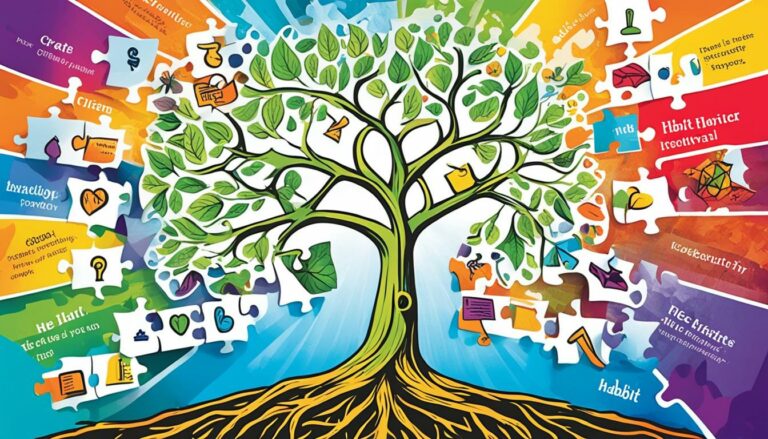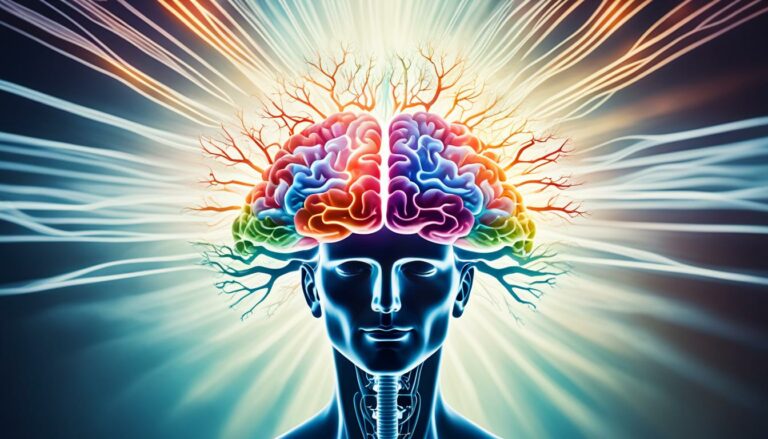Why Can’t I Remember My Childhood and Teenage Years: Unveiling Memory Retrieval Challenges
Ever wondered why memories from your early years, as a child, seem to slip through the cracks? Whether it’s the first bike ride or a high school graduation, the inability to recall these moments can be perplexing. But fear not, you’re not alone in this phenomenon. In this post, we’ll delve into the intriguing reasons behind why our brains struggle to retain childhood and teenage memories.
From brain development to psychological factors, a myriad of influences shape how we store and retrieve memories from our formative years. So if you’ve ever pondered about those hazy recollections or questioned why certain events remain crystal clear while others fade away, stick around as we unravel the mysteries of memory retention during our younger days.
Key Takeaways
- Understanding Childhood Amnesia: Recognize that the inability to remember early childhood experiences is a common phenomenon due to the ongoing development of the brain during that period.
- Factors Affecting Memory Retrieval: Acknowledge that various factors such as stress, trauma, and emotional significance can impact the retrieval of memories from childhood and teenage years.
- Coping Strategies for Memory Loss: Implement techniques like journaling, talking to family members, and seeking professional help to cope with memory loss during adolescence and childhood.
- Embracing Early Emotional Memories: Appreciate the significance of early emotional memories and their impact on shaping one’s identity and emotional well-being.
- Potential for Reclaiming Memories: Consider the possibility of reclaiming lost memories through therapy, relaxation techniques, and creating a supportive environment.
- Addressing Mental Health Concerns: Understand the importance of addressing cognitive and mental health issues that may contribute to memory retrieval challenges.
Unveiling Childhood Amnesia
Infantile amnesia, the inability to recall early childhood memories, is a well-documented phenomenon. Memories formed before the age of 3 are typically not retained into adulthood. Psychologists and neuroscientists have extensively studied this intriguing aspect of memory.
The underdeveloped brain structures and neural connections in young children play a significant role in infantile amnesia. Limited language and narrative skills during early childhood impact the encoding and retrieval of memories. The rapid neuronal growth and synaptic pruning that occur during infancy also contribute to the formation of memories.
The hippocampus, a vital brain structure, is essential for the formation and retrieval of autobiographical memories. Developmental changes in the hippocampus influence memory consolidation during childhood. Damage to this region can lead to significant memory impairments.
Factors Affecting Memory Retrieval
Cognitive Issues
Cognitive immaturity in early childhood significantly impacts the encoding and storage of memories. During childhood, the brain’s cognitive processes are still developing, affecting how memories are formed and retained. As a result, individuals may struggle to recall events from their early years due to the incomplete development of memory-related brain structures.
Moreover, limited attention span and immature cognitive processes contribute to memory deficits during childhood and teenage years. Young children often have shorter attention spans compared to adults, making it challenging for them to concentrate on forming long-lasting memories. This can lead to fragmented or incomplete recollections of past events as they grow older.
Cognitive development plays a crucial role in organizing and retaining autobiographical memories. The ability to categorize experiences into coherent narratives develops gradually throughout childhood and adolescence. Therefore, incomplete cognitive development during these formative years can hinder the organization and retrieval of specific memories from this period.
Mental Health Impacts
The inability to recall childhood memories may have profound implications for emotional well-being and identity formation. When individuals are unable to access their early experiences, it can create feelings of disconnection from their past selves. This sense of detachment can impact one’s understanding of personal history and identity as they transition into adulthood.
Memory gaps from childhood can also lead to feelings of confusion regarding one’s life story or personal narrative. Without access to significant events or emotions from earlier years, individuals may experience uncertainty about their own history—potentially impacting their overall mental well-being.
Understanding the mental health implications related to infantile amnesia is essential for providing appropriate support systems for those who struggle with recalling childhood memories effectively. By recognizing the potential emotional consequences associated with this phenomenon, caregivers and mental health professionals can offer targeted interventions that address an individual’s unique needs in processing these memory challenges.
Emotional Memories Significance
Emotional experiences play a pivotal role in shaping our memory encoding and retention processes throughout life—especially during childhood and teenage years when many formative emotional experiences occur. These emotionally charged moments tend to be more memorable than neutral ones because intense emotions trigger distinct neurological responses that enhance memory consolidation.
Furthermore, emotional significance enhances the likelihood of retaining specific childhood memories over time;
The Impact of Trauma on Memories
Stress and Memory Function
Chronic stress, especially during crucial developmental stages like childhood and teenage years, can significantly impact memory function. When the body is constantly flooded with stress hormones, it may interfere with the brain’s ability to consolidate memories properly. This interference can lead to memory gaps or difficulties in retrieving specific events from the past. Understanding this connection between chronic stress and memory function is essential for addressing memory deficits in individuals who have experienced traumatic events.
For example, a teenager enduring ongoing bullying at school may find that their ability to recall certain details about their daily life becomes compromised due to the constant activation of their body’s stress response system. This could manifest as forgetfulness about routine activities or difficulty recalling specific incidents related to the bullying experience.
High levels of stress hormones such as cortisol can disrupt the process of consolidating memories from short-term storage into long-term storage within the brain. Without proper consolidation, memories might not be retained effectively, leading to potential gaps in recollection later in life.
Trauma and Abuse Link
Traumatic experiences during childhood and adolescence have been strongly linked to memory suppression or dissociation. Severe abuse or trauma can overwhelm a young person’s coping mechanisms, leading them to suppress distressing memories as a way of protecting themselves from emotional pain. As a result, these suppressed memories become inaccessible or fragmented over time.
Consider a child who has experienced severe neglect at an early age; this trauma could lead them to develop dissociative amnesia where they are unable to remember significant parts of their childhood due to subconscious efforts aimed at shielding themselves from distressing emotions associated with those experiences.
Exploring this link between trauma, abuse, and memory repression is vital for recovery efforts because it allows mental health professionals and caregivers alike to understand how these experiences shape an individual’s capacity for remembering key aspects of their formative years.
Ordinary Forgetfulness and Memory
Insights into Forgetfulness
Forgetfulness in adulthood can be influenced by inability to recall childhood memories due to the brain’s natural limitations. Understanding that normal forgetfulness is a part of everyday life helps differentiate it from memory disorders. Forgetting minor details from our early years is common and doesn’t necessarily indicate a problem with memory.
For instance, misplacing items or forgetting appointments are typical examples of ordinary forgetfulness. Similarly, not being able to remember specific events or experiences from childhood falls within the realm of regular memory lapses rather than an indication of a serious issue.
Exploring insights into forgetfulness provides essential context for understanding why individuals may struggle with recalling their childhood and teenage years. It allows us to recognize that these difficulties are often part of the normal functioning of the human mind.
Effects on Memory Recall
The difficulty in recalling childhood memories can have significant impacts on an individual’s self-understanding and relationships. When someone cannot remember key events or experiences from their formative years, it may lead them to question their personal history and identity.
This lack of recollection might affect how they relate to others as well, especially when friends or family members reminisce about shared past experiences. Feeling left out or disconnected due to not remembering important moments can create emotional strain in relationships.
Moreover, exploring the effects of impaired memory recall sheds light on its broader implications for mental health and well-being. It underscores the importance of acknowledging these challenges as a fundamental aspect of human cognition rather than immediately attributing them to trauma or other underlying issues.
Coping with Adolescent Memory Loss
Challenges in Recalling Memories
Retrieving early memories can be challenging due to various factors such as time, interference, and developmental changes. As we grow older, our cognitive abilities evolve, making it difficult to access memories from our childhood and teenage years. The lack of retrieval cues and contextual details further complicates the recollection of childhood memories. For instance, a person might struggle to remember specific events or experiences from their adolescence because they lack environmental or sensory triggers associated with those memories.
Understanding the specific obstacles to recalling early memories is crucial in developing effective recovery strategies. It’s important for individuals experiencing difficulty remembering their teenage years or childhood to recognize that this challenge is common and not necessarily indicative of a serious issue. By acknowledging these challenges, individuals can seek appropriate support systems and techniques tailored to address adolescent memory loss.
Strategies for Recovery
Various therapeutic approaches are available to help facilitate the recovery of forgotten childhood memories. These may include counseling sessions aimed at exploring suppressed emotions or traumatic experiences that could be blocking access to certain memories from adolescence. For example, talking with a therapist about family dynamics during one’s teenage years might trigger repressed recollections.
Creating a supportive environment is essential for individuals seeking to recover lost memories safely. This often involves involving close friends or family members who can provide emotional support throughout the process without imposing undue pressure on the individual attempting memory recovery.
Implementing structured techniques can aid in accessing suppressed or forgotten memories from adolescence. For instance, journaling about any fragments of remembered events may gradually prompt additional recall over time as more details resurface through focused reflection.
Overcoming Memory Retrieval Challenges
Nurturing Memory Processing
Engaging in activities that stimulate autobiographical reminiscence supports memory processing. For instance, looking at old photo albums, watching childhood videos, or revisiting significant places from your past can trigger the recall of long-forgotten memories. These activities help in activating the brain’s neural pathways associated with specific events and emotions from childhood and teenage years.
Encouraging storytelling and reflection can nurture the preservation of childhood memories. Sharing stories about past experiences with family members or close friends not only strengthens relationships but also reinforces memory retention. Reflecting on these shared memories helps in solidifying them within one’s mind, making it easier to remember details from childhood and teenage years.
Nurturing memory processing involves creating opportunities for meaningful recollection through journaling or diary keeping. Writing down significant events, feelings, or thoughts experienced during childhood provides a tangible record that aids in preserving memories. This process allows individuals to revisit their past experiences through written accounts, aiding in the recollection of forgotten details.
Recovering Childhood Memories
Recovering childhood memories often involves a gradual exploration of fragmented recollections accumulated over time. By piecing together bits of information related to specific events or moments from childhood, individuals can reconstruct a more comprehensive picture of their early years.
Validating personal experiences contributes to a sense of continuity in memory recovery efforts as it reassures individuals that their feelings and perceptions are acknowledged and respected by others involved. This validation fosters an environment where people feel comfortable exploring their past without fear of judgment.
Recovering childhood memories requires patience, empathy, and professional guidance when facing challenges related to memory retrieval processes. Seeking support from mental health professionals specializing in memory recovery can provide valuable insights into navigating obstacles hindering the remembrance of childhood and teenage years.
The Significance of Early Emotional Memories
Emotional vs. Factual Recall
The ability to recall emotional experiences often surpasses the recollection of specific events or details. For instance, a person may not remember what they received for their 7th birthday, but they vividly recall feeling excited and happy on that day. This highlights the distinction between emotional impressions and factual details in memory retrieval.
Exploring differences between emotional versus factual recall provides insights into subjective interpretation. It’s like watching a movie where you remember how it made you feel rather than every single scene or line of dialogue. Understanding this aspect sheds light on how our minds prioritize certain types of memories over others.
Impact on Personal Identity
The absence of memories from early life can impact an individual’s sense of self-continuity. For example, if someone can’t remember their childhood or teenage years, they might struggle with connecting their past experiences to who they are today. This lack of continuity could lead to feelings of confusion or even identity issues.
Understanding how missing childhood memories affect personal identity is crucial for psychological well-being. It’s similar to trying to piece together a puzzle without all the necessary pieces – there will always be gaps and uncertainties about the complete picture. Addressing these memory deficits becomes vital in helping individuals establish a coherent narrative about themselves.
The Possibility of Reclaiming Memories
It’s crucial to consider the ethical implications. Many individuals may wonder why they can’t remember their childhood and teenage years, prompting them to explore methods for memory recovery. However, this process involves various ethical considerations that must be addressed responsibly.
Addressing these ethical concerns is essential before delving into memory reclamation techniques. For instance, therapists and professionals need to ensure that the methods used are safe and do not lead to false recollections. It’s important to recognize that while exploring avenues for reclaiming lost memories, sensitivity and expertise are paramount in guiding individuals through this delicate process.
Utilizing specialized techniques tailored to individual needs facilitates effective memory recovery. Techniques such as guided imagery, hypnosis, or narrative therapy are commonly employed in this context. These evidence-based approaches support safe memory recovery under professional guidance.
Addressing Cognitive and Mental Health Issues
Cognitive Health and Memory
Promoting cognitive health is crucial for enhancing memory function throughout life. Engaging in activities such as learning new skills, staying socially active, and participating in regular physical exercise can significantly contribute to maintaining cognitive vitality. For instance, learning a musical instrument or a new language stimulates the brain, promoting better memory retention. Similarly, socializing with friends or family members keeps the mind engaged and fosters stronger memory recall.
Moreover, interventions focused on cognitive health can help mitigate age-related memory decline. These interventions may include puzzles or brain games that challenge cognitive abilities, thereby improving memory retention over time. By regularly engaging in mentally stimulating activities like crossword puzzles or Sudoku, individuals can effectively combat the natural decline of their memory as they age.
Mental Health Support
Seeking mental health support is essential. Professional counseling or therapy offers valuable avenues for processing emotions linked to impaired memory recall due to traumatic events during childhood and teenage years. Through therapy sessions, individuals can explore these suppressed memories in a safe environment under the guidance of trained professionals.
Furthermore, mental health support encompasses holistic care that addresses psychological well-being alongside efforts towards recovering memories from early life stages. This comprehensive approach involves not only working towards remembering past experiences but also focusing on an individual’s overall mental wellness by managing stress levels and addressing any underlying emotional concerns.
Final Remarks
So, there you have it – the mystery of why you can’t recall your childhood and teenage years unraveled! Childhood amnesia, the impact of trauma, ordinary forgetfulness, and coping with memory loss during adolescence all play a role in shaping our memory retrieval. There’s hope for reclaiming those precious memories. By addressing cognitive and mental health issues, you can work towards unlocking the treasure trove of early emotional memories.
Now armed with this knowledge, take charge of your memory retrieval journey. Seek professional help if needed and explore techniques to overcome these challenges. Embrace the possibility of reclaiming your memories and cherish the insights they hold. Your past experiences are an integral part of who you are today. So, go ahead, embark on this quest to reconnect with your younger self and make peace with the past.
Frequently Asked Questions
Why do we have difficulty remembering our childhood and teenage years?
Our brains undergo significant development during childhood and adolescence. This period of rapid growth can lead to a phenomenon called “childhood amnesia,” where early memories are not retained due to the ongoing maturation of the brain’s memory systems.
What factors can affect memory retrieval from childhood and teenage years?
Several factors, such as emotional significance, trauma, and individual differences in cognitive development, can influence the retrieval of memories from these formative years. Environmental influences and the quality of encoding experiences play a role in memory retention.
How does trauma impact our ability to recall memories from childhood?
Traumatic experiences during childhood or adolescence can disrupt normal memory processes. The intense emotions associated with trauma may lead to fragmented or repressed memories. Seeking professional support is crucial for processing and addressing traumatic events that may affect memory retrieval.
Is it common for people to experience ordinary forgetfulness regarding their childhood and teenage years?
Yes, it’s common for individuals to experience ordinary forgetfulness when recalling specific details from their past. Memory decay over time coupled with new experiences replacing old ones contributes to this phenomenon. However, core emotional memories often remain intact despite forgetfulness about specific events.
Can coping strategies help manage adolescent memory loss?
Implementing effective coping strategies such as journaling, engaging in reminiscence activities, seeking social support, practicing mindfulness techniques, and maintaining a healthy lifestyle can assist in managing adolescent memory loss. These strategies promote overall well-being while potentially aiding in memory retrieval efforts.







